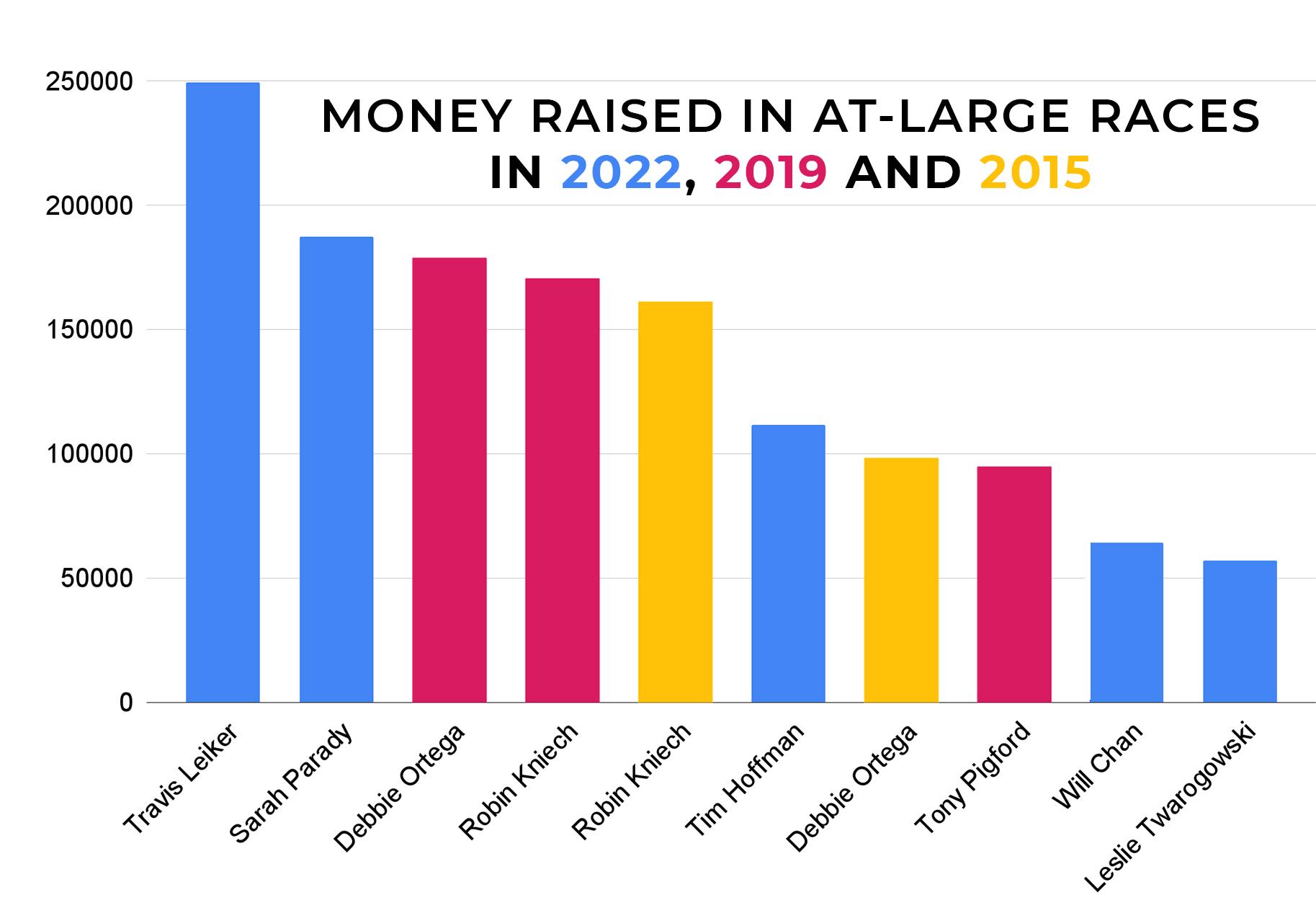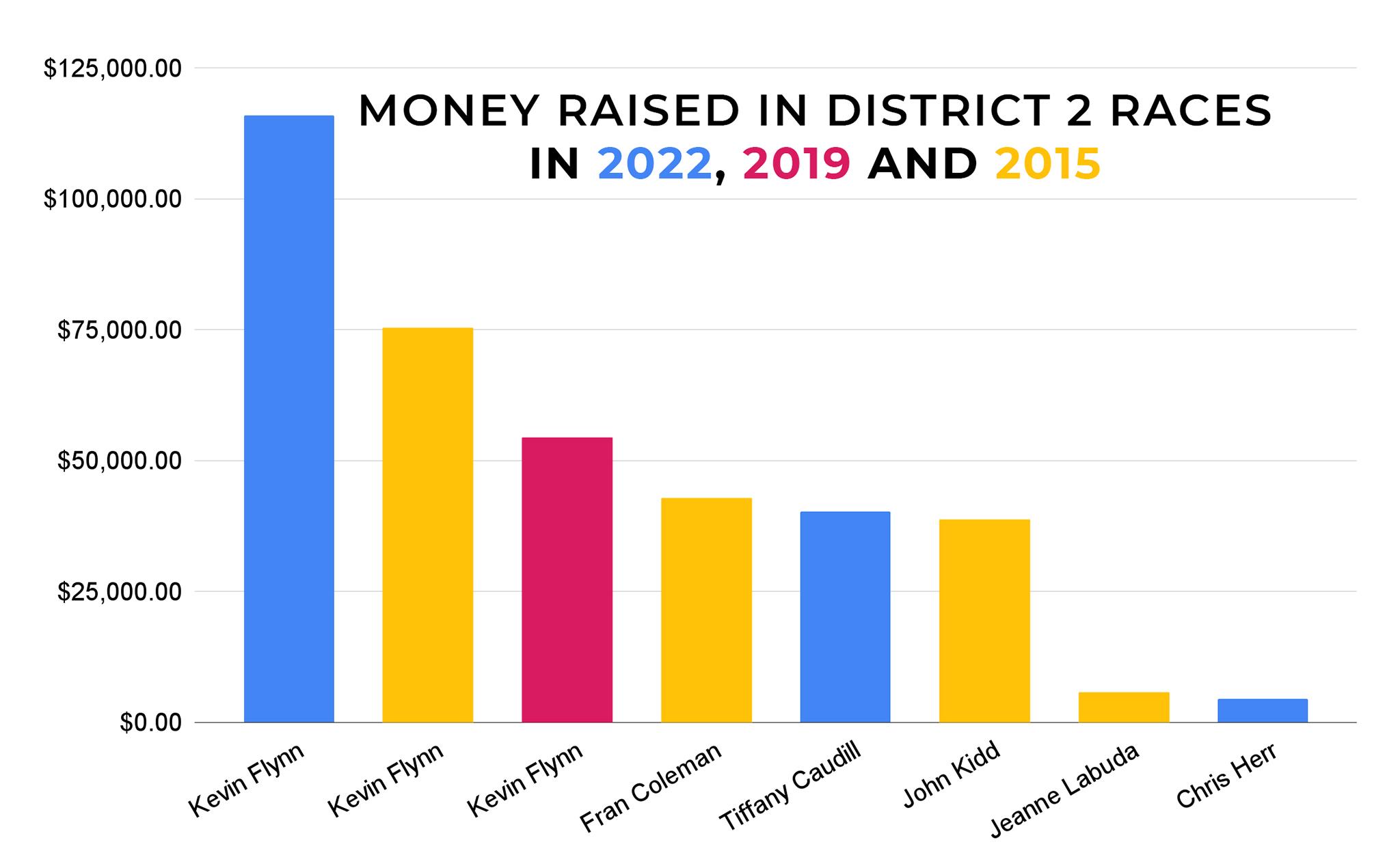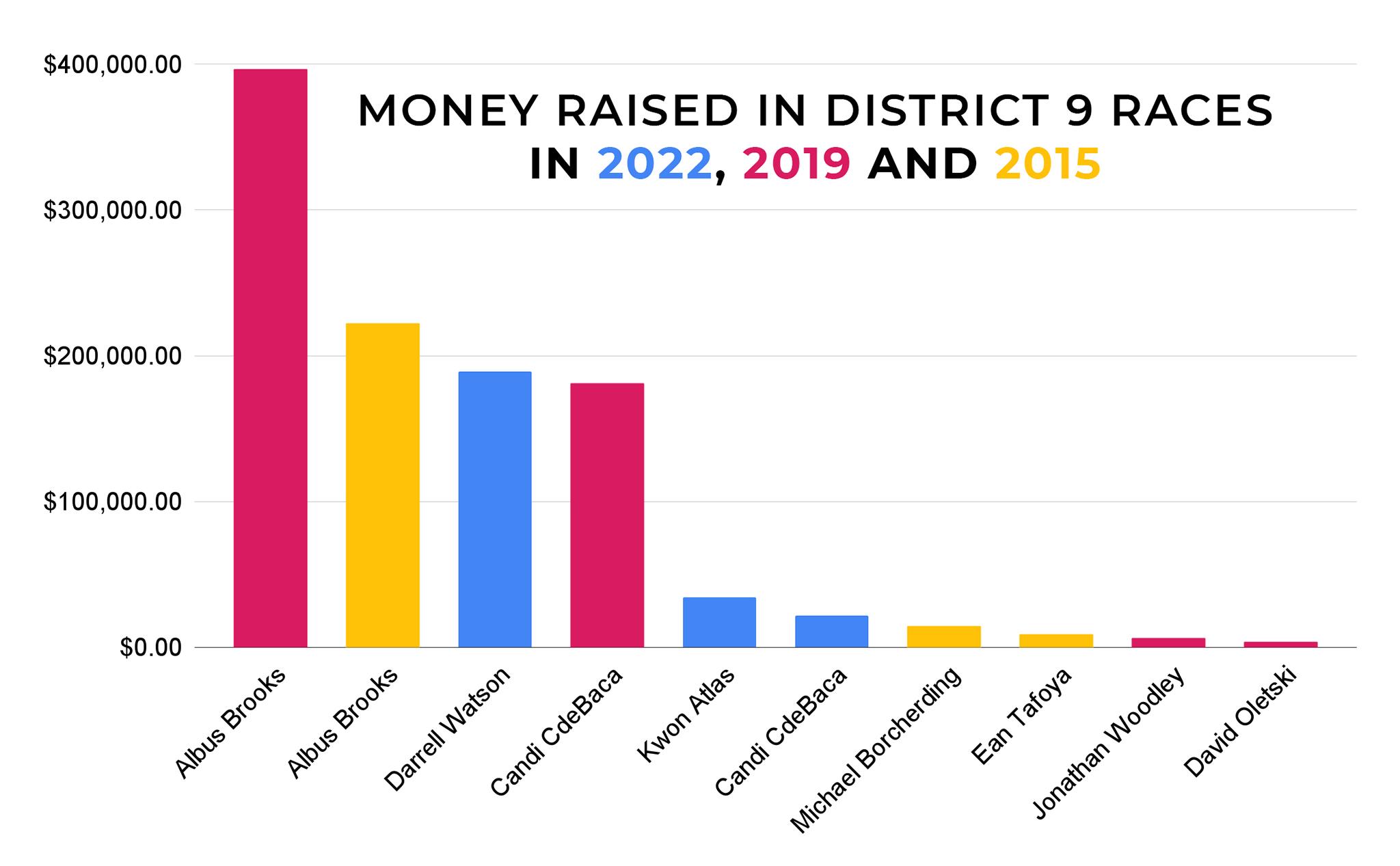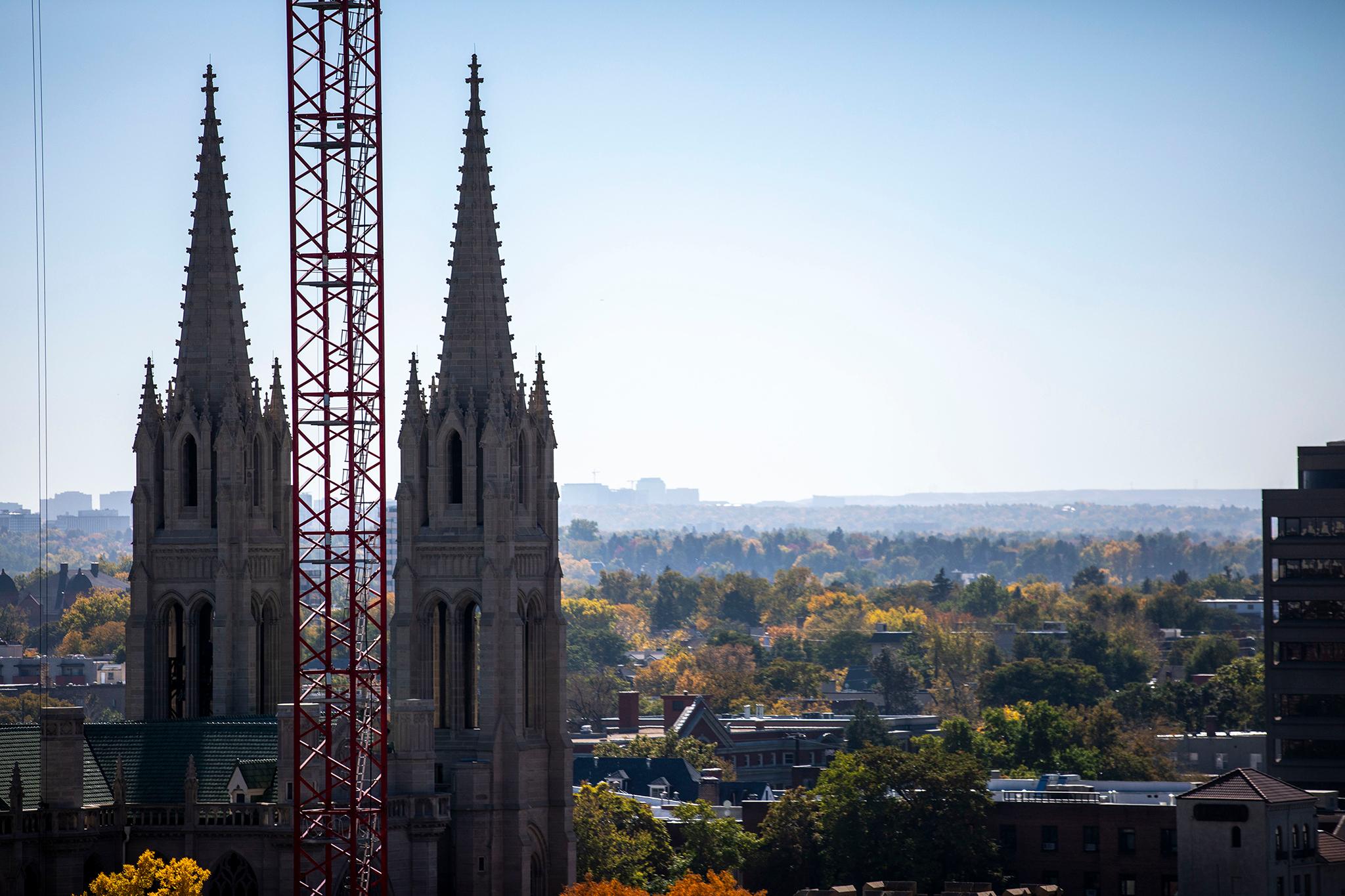The second fundraising deadline for people who want to be your next mayor or City Council rep has passed -- and the numbers show things are starting to heat up earlier than usual.
In prior years, October was maybe too early to report on fundraising, but Denver's new Fair Elections Fund (FEF) has gotten the money ball rolling sooner than usual. The city set aside $8 million to match small donations made by Denver residents. Council could vote to add more to that pot, should it run dry, but the idea that matching dollars are limited - and the reality that it takes time to distribute the money - has incentivized candidates to get their shows on the road.
So far, Denver doled out $1 million from the fund in just the first round of payouts. The second round will come out in a few weeks, so we won't make too many cross-race comparisons just yet.
Still, one thing is clear: The Fair Elections setup is making races more expensive than we've seen lately.
Take, for instance, the City Council At-Large contest. So far, eight candidates have filed campaign finance reports, five of whom have received one round of FEF cash. With the help of those matching dollars, candidates Travis Leiker and Sarah Parady have each brought in more than outgoing Council members Robin Kniech and Debbie Ortega did during their runs in 2019 and 2015.
Leiker, who ran for District 10 in 2015, told us he's expecting another $100,000 in a few weeks, which will bring his purse to a level "appropriate for someone who is running city-wide and is a serious candidate." Despite breaking recent funding records for the at-large seat, he told us he will keep fundraising. He also said he plans to spend every cent he brings in, and added he'll take particular care with the matching money that came from taxpayer coffers. He said he might earmark those funds for staffing, for instance.
"With this kindness and generosity from the Fair Election Fund comes added responsibility," he said.

Kniech, who's not currently running for any office, told us this year's high figures "do not surprise or concern" her.
"The at-large race, in the years prior to Debbie and I, actually was larger for some candidates in some years ... because some of those candidates had wealth of their own or connections Debbie and I did not," she wrote us. "It was incredibly difficult to reach voters city-wide on the budget that I raised."
Similarly, the FEF boost has propelled District 2 Council member Kevin Flynn beyond either of his two last runs for office. At the moment, he's about 30% ahead of where he ended up in 2019.

No other race has eclipsed prior budgets just yet, but it's still early. The FEF hasn't touched District 5, 7 or 8 races.
In District 9, challenger Darrell Watson has raised only about half as much as Albus Brooks did when he lost his seat in 2019. This might be a good place to remind you that money is important in elections, but it won't always predict winners.

Kniech also told us this wave of FEF money will go a long way to help Council candidates reach as many people as mayoral contenders. In the past, she said, people didn't always vote in Council races because voters felt they didn't know enough about the candidates. She supported the fund's creation, and added, "These initial numbers indicate the Fair Election Fund is working as intended."
The mayoral race is heating up, and none of those candidates have gotten any FEF cash yet.
Many candidates for Denver's top seat will have FEF matches in their accounts in a few weeks. But right now, before that happens, mayoral candidate Andy Rougeot is sitting on the biggest campaign purse of any race. He did not sign up for the fund and instead loaned himself $250,000, and told us he thinks "it's ridiculous that the taxpayers are paying for political ads for other people."
While his infusion has put him in league with top funders across any race since 2015, he's still got nothing on Mayor Michael Hancock, whose purse stretched into the millions in his last two runs.
Kelly Brough, Leslie Herod and Debbie Ortega have so far raked in the most donations in this race, respectively, and each has collected at least half of their donations from Denver residents.
Here are some more random stats and race breakdowns:
Donations really got flowing at the end of September, right up to the Quarter 2 deadline.
About 9,000 individual humans have donated money so far in this cycle. Eleven people have donated to 10 or more candidates. Three of them are lobbyists, two are lawyers and one works in real estate.
Eleven people who work for CRL Associates, a major lobbying group in town, have donated $10,000 to 18 candidates, including Herod, Ortega and Brough. Six people who work for Sewald Hanfling Public Affairs, another lobbying group, have donated nearly $5,000 to 16 candidates, none of which are running for mayor.
For the following race breakdowns, we omitted districts 1, 3, 6 and 11, where there's currently only one candidate each in the finance records. You can check out all of our data here or see the city's data, where we got everything from in the first place.













